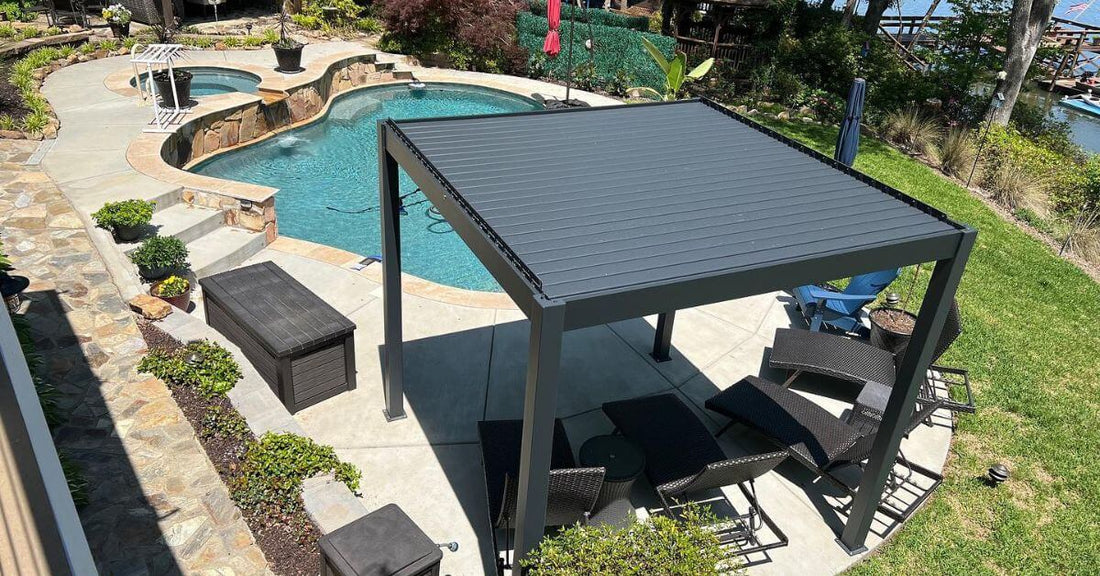
Do You Need a Permit To Install a Pergola?
Share

Pergolas are the key to enjoying time spent outdoors. But there’s more to putting up this structure than dreaming it into existence.
Homeowners definitely don’t want to end up on the wrong side of the law or face fines for installing it incorrectly, defying building codes, or putting their property in harm’s way. Let’s dive into different circumstances when you need or don’t need a permit to install a pergola.
Permits Are Necessary for HOA Properties
If you live in a community governed by a Homeowners Association (HOA), you’ll likely need a permit before installing a pergola. HOAs have guidelines to maintain the aesthetic and value of the neighborhood. It’s always best to check these regulations before starting construction.
Getting your pergola approved ensures you’re not violating HOA rules, which could save you from potential fines or having to remove the structure altogether. A quick chat with your HOA can clarify what’s needed and make the installation process smoother and stress-free.
Permits Are Uncommon for DIY Freestanding Structures
It’s easy to assume you would need a permit when erecting a new structure in your backyard. However, if you’re building a freestanding pergola from a DIY kit, permits aren’t necessary.
Creating a structure from raw materials requires precise measurements, cuts, and structural integrity assessments. This level of customization and potential for error makes it subject to stricter building codes and permit requirements.
When you choose a freestanding motorized pergola from BON Pergola, you’re receiving a user-friendly kit with straightforward instructions and guaranteed high-quality materials. The prefabricated structure fits together seamlessly, ensuring stability and safety. Because these kits are standardized, they meet safety criteria that negate the need for permits.
Permits Are Essential for Attached Pergolas
Unlike freestanding pergolas, attached pergolas are connected to the main structure of your house. This connection requires adherence to building codes and careful construction for assured structural integrity.
We recommend hiring a professional contractor to complete the job, so you’ll need a permit. A professional installation protects you and your property while meeting safety standards that avoid legal obstructions.
Permits are also imperative for strengthening your home’s property value. When it comes time to sell, possessing permits for the addition will prevent future legal issues and contribute to a smoother transaction.
Permits Are Necessary for Hardwiring Electricity
Some homeowners choose to hardwire the electricity from their pergola to the breaker of the house for a more stable and reliable power supply. This setup offers a permanent, more powerful solution for illuminating the pergola.
You must hire an electrician for hardwiring electricity. They will obtain the permit, follow building codes and regulations, and install the wiring for a safe and reliable lighting system.
Needing a permit to install a pergola depends on your property’s location and how you choose to install the structure. The fundamental component for a successful project is to take your time with planning. When you carefully tackle every aspect, you’ll have a gorgeous backyard pergola that adheres to every regulation.
